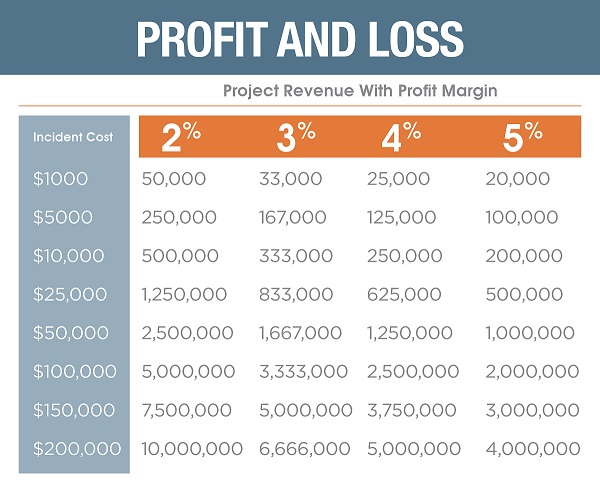
Workplace injuries aren’t just harmful to employees; they hurt the entire company—from profits to employee morale.
The Occupational Safety and Health Administration (OSHA) estimates that occupational injuries and illnesses cost businesses of all industries $170 billion each year in the U.S.
For construction companies, the average cost of one lost-time injury on a job site is $35,000, though many injuries cost much more due to litigation, medical expenses and compensation, according to the Workplace Safety and Insurance Board. Further, 6-9% of construction project costs are workplace injury related, leading to long-term increases in insurance costs and shrunken profit margins.

Studies repeatedly show that an investment in safety is an investment in the company’s future. According to a study by the Construction Safety Association of Ontario, when companies invest just 2.5% of project costs into safety training and procedures, accident rates decrease and profits increase by 4-7% per project.
“A common misconception is that a business’ safety investment does not show an immediate, visible return,” says Russ Bartholomew, President of CORE Safety Group. “The truth is, within the first year, companies will see more efficient work and increased profits from a lack of injuries, which greatly impacts their bottom line.”
Employees also benefit immensely from safety training. Company safety programs demonstrate a concern and care for employees. In turn, employees feel respected and have a more favorable opinion of their employer. The morale boost often results in increased productivity.
Employees’ safety consciousness is another benefit of safety prevention programs. With thorough safety training, specifically for onsite construction workers, employees quickly become lookouts for unsafe practices on the site. Safety training continues to pay out as employees practice safety daily and injuries decrease.
In the end, OSHA studies found that companies that invest in safety procedures see a significant 20-40% decrease in injury and illness costs.
“When companies invest in safety training and procedure planning, employees are more productive and fulfilled at work. Profits also increase as a priority on safety becomes engrained into company culture,” said Bartholomew.
To learn more about the services offered by CORE Safety Group and how to implement an effective workplace safety program, contact us.